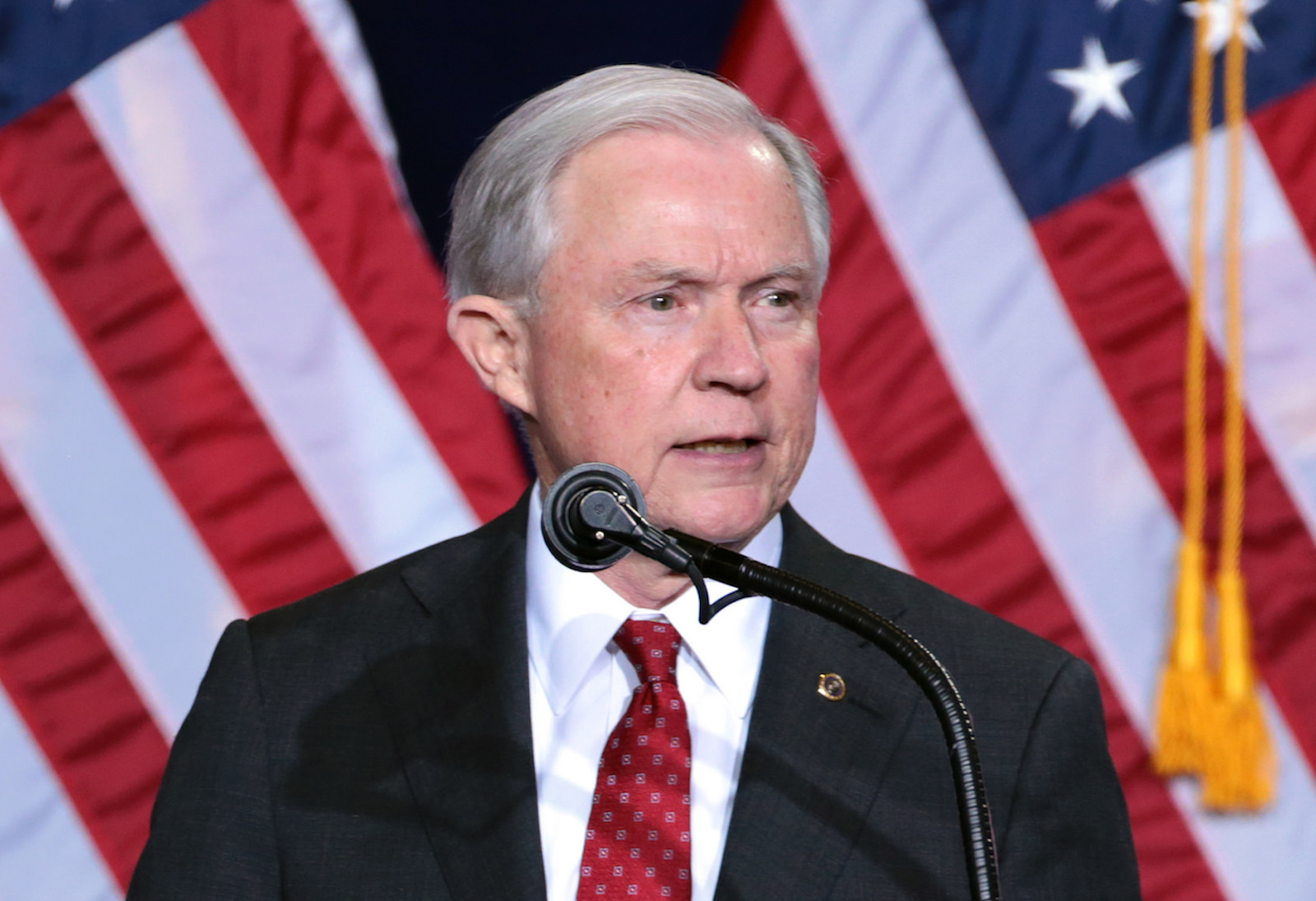The Local newsletter is your free, daily guide to life in Colorado. For locals, by locals.
Attorney General Jeff Sessions rescinded an Obama-era policy that discourages federal prosecutors from pursuing marijuana-related charges in states where recreational use of cannabis is legal on Thursday. The decision has sparked bipartisan outcry from Colorado lawmakers and will likely cause confusion within the state’s robust legal-cannabis industry.
A statement released by Sessions directs law enforcement to draw upon the Controlled Substances Act and DEA regulations, which still classify marijuana as a Schedule I drug. It goes on to state that “previous nationwide guidance specific to marijuana enforcement is unnecessary and is rescinded, effective immediately.” This includes the 2013 Cole Memo, written by then Deputy Attorney General James Cole, which informed states with legalized marijuana that the DOJ would not prioritize prosecuting federal marijuana charges, so long as those states effectively regulated cultivation and distribution of the substance. Since 2013, the federal government has taken a non-interference approach and allowed states to dictate their own cannabis policies. It is now unclear what impact the federal government will have on the legal cannabis industry or whether more marijuana-related prosecutions will follow.

Among the first Colorado lawmakers to react to the news was Republican Senator Cory Gardner, who issued a series of forceful tweets early Thursday morning. “This reported action directly contradicts what Attorney General Sessions told me prior to his confirmation. With no prior notice to Congress, the Justice Department has trampled on the will of the voters in CO and other states,” he wrote. His office did not return 5280’s request for additional comment.
Gardner also wrote, “I am prepared to take all steps necessary, including holding DOJ nominees, until the Attorney General lives up to the commitment he made prior to his confirmation.” Gardner also retweeted a video of President Trump from 2016 in which he told a reporter that as president he would not use federal authority to shut down the sale of recreational marijuana in states like Colorado. “I wouldn’t do that,” Trump says in the video. “I think it’s up the states.” Democrat U.S. Rep Diana DeGette retweeted the same video, and issued another tweet calling the decision “unconscionable.”
Republican U.S. Rep. Mike Coffman seized on the issue of states’ rights Thursday morning, issuing a statement on Twitter that read, in part: “The decision that was made to legalize marijuana in Colorado was made by voters of Colorado and only applies within the boundaries of our state. Colorado had every right to legalize marijuana and I will do everything I can to protect that right against the power of an overreaching federal government.”
Democrat Senator Michael Bennet also issued a statement via Twitter early Thursday morning that read: “In rescinding the Cole memo, the Attorney General failed to listen to Colorado, and will create unnecessary chaos and confusion.” At time of publication, his press secretary could not provide on-the-record comment in response to 5280‘s questions regarding what steps the senator may take to combat the DOJ decision.
According to the Associated Press, the policy shift will allow U.S. attorneys across the country to decide the extent of federal resources devoted to marijuana enforcement, depending on what they see as priorities in their districts. The interim U.S. Attorney in the District of Colorado is Bob Troyer, who has been the acting U.S. Attorney since August 2016 and will continue to serve in that roll unless President Trump nominates someone else. Now that the Cole Memo has been rescinded, Troyer’s office will dictate the future of federal marijuana enforcement in Colorado.
5280 asked his office Thursday morning what additional federal resources—if any—Troyer might devote to marijuana enforcement. Troyer’s spokesman offered a statement indicating that the U.S. Attorney’s Office in Colorado will not significantly alter its enforcement practices. “The Attorney General…directed that federal marijuana prosecution decisions be governed by the same principles that have long governed all of our prosecution decisions,” the statement reads. “The United States Attorneys Office in Colorado has already been guided by these principles in marijuana prosecutions—focusing in particular on identifying and prosecuting those who create the greatest safety threats to our communities around the state. We will, consistent with the Attorney General’s latest guidance, continue to take this approach in all of our work with our law enforcement partners throughout Colorado.”








